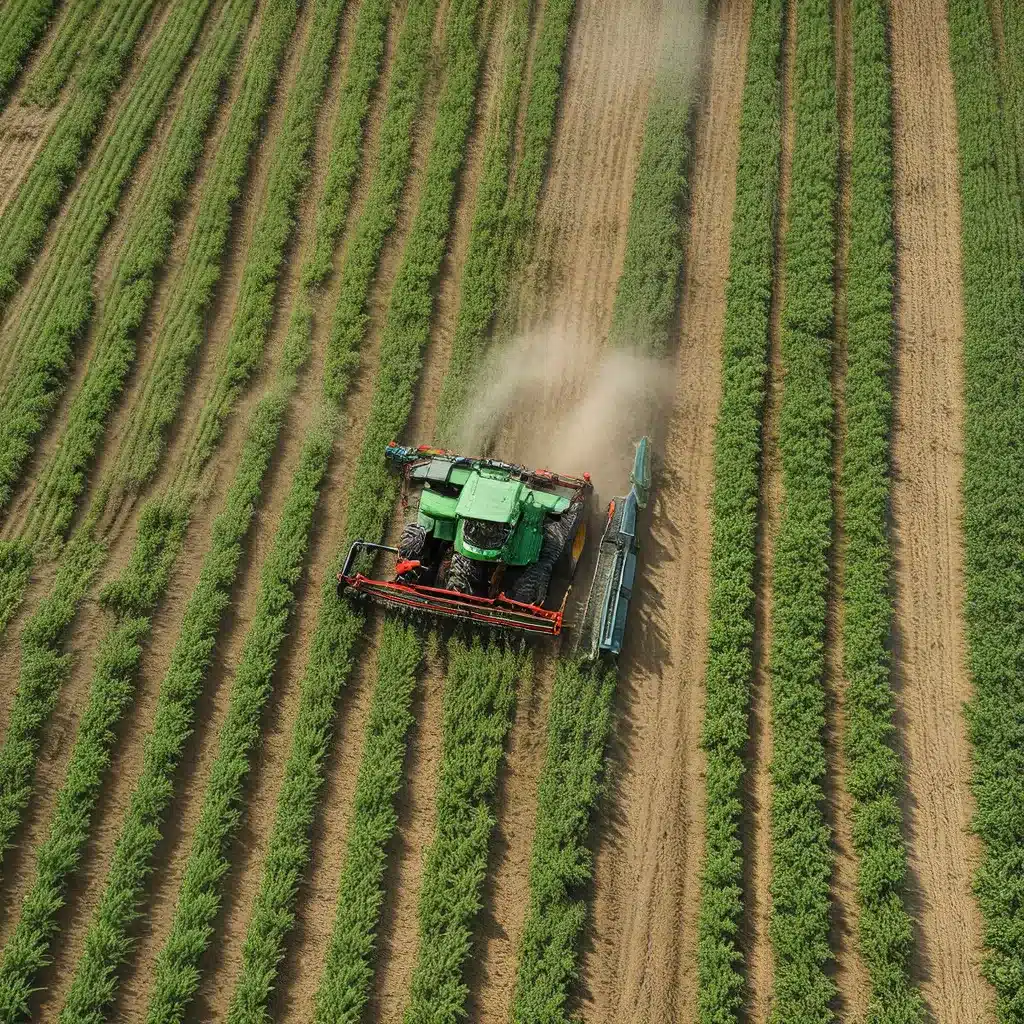
The Rise of Sensor Networks in Agriculture
In the rapidly evolving world of modern agriculture, sensor networks and Internet of Things (IoT) technologies have emerged as game-changers, transforming the way farmers manage their crops and optimize resource utilization. The integration of these advanced technologies has given rise to the concept of precision farming, which aims to maximize yields, minimize waste, and enhance the overall sustainability of agricultural operations.
At the heart of this revolution are sensor networks, which serve as the backbone for precision farming. These interconnected systems of sensors, gateways, and data processing platforms enable farmers to collect and analyze a wealth of real-time data from their fields, providing them with unprecedented insights into the health and status of their crops. From monitoring soil moisture and nutrient levels to tracking weather patterns and pest infestations, sensor networks empower farmers to make informed decisions and implement targeted interventions.
Optimizing Crop Yields with Sensor-Driven Precision Farming
The adoption of sensor-enabled precision farming has led to a dramatic improvement in crop yields and resource efficiency. By leveraging data-driven insights, farmers can now tailor their cultivation practices to the specific needs of their crops, ensuring optimal growth and minimizing waste.
Studies have shown that precision farming can increase crop yields by up to 15% while reducing water usage by 20% and fertilizer application by 30%. This remarkable improvement in efficiency is driven by the ability to monitor and adjust various environmental factors in real-time, such as soil moisture, nutrient levels, and pest infestations.
Sensor networks deployed across the fields collect and transmit this critical data to a centralized platform, where advanced analytics are applied to generate actionable insights. Farmers can then respond quickly to emerging issues, optimizing irrigation schedules, targeting fertilizer application, and implementing timely pest control measures.
Enhancing Sustainability and Resource Management
The integration of sensor networks and IoT technologies in precision farming extends beyond just improving crop yields. It also plays a crucial role in enhancing the overall sustainability of agricultural practices and optimizing the use of natural resources.
IoT-enabled sensor networks allow farmers to monitor and control water usage with unprecedented accuracy, ensuring that irrigation systems are only activated when and where necessary. This water conservation not only reduces costs for the farmer but also minimizes the environmental impact of agricultural operations.
Moreover, sensor-driven data analysis enables precise application of fertilizers and pesticides, minimizing waste and reducing the risk of groundwater contamination. By optimizing the use of these inputs, farmers can enhance the sustainability of their operations while maintaining high crop yields.
Addressing Security Challenges in Sensor-Enabled Farming
As sensor networks and IoT devices become increasingly integral to precision farming, the need for robust security measures has become paramount. Vulnerabilities in these systems can expose sensitive agricultural data to cyber threats, potentially leading to financial losses, crop damage, and environmental harm.
To mitigate these risks, farmers and technology providers must adopt a multilayered approach to security, incorporating encryption, access controls, and continuous monitoring of their sensor network infrastructure. Secure communication protocols, firmware updates, and vulnerability assessments are critical to ensuring the integrity and confidentiality of the data collected and transmitted by these systems.
The Future of Sensor-Enabled Precision Farming
As the sensor network and IoT technologies continue to evolve, the potential for precision farming to revolutionize the agricultural industry is immense. Advancements in machine learning and artificial intelligence will enable more sophisticated and predictive analytics, allowing farmers to anticipate and respond to emerging challenges with even greater precision.
Furthermore, the integration of renewable energy sources and energy-efficient sensor network designs will play a crucial role in enhancing the sustainability of precision farming systems. By optimizing energy consumption and reducing the carbon footprint of agricultural operations, these innovations will contribute to the long-term viability of the sector.
The sensor-enabled precision farming revolution is well underway, and its impact on the future of agriculture is undeniable. By leveraging these transformative technologies, farmers can unlock new levels of productivity, resource efficiency, and environmental stewardship, ultimately securing the food supply and safeguarding the planet for generations to come.